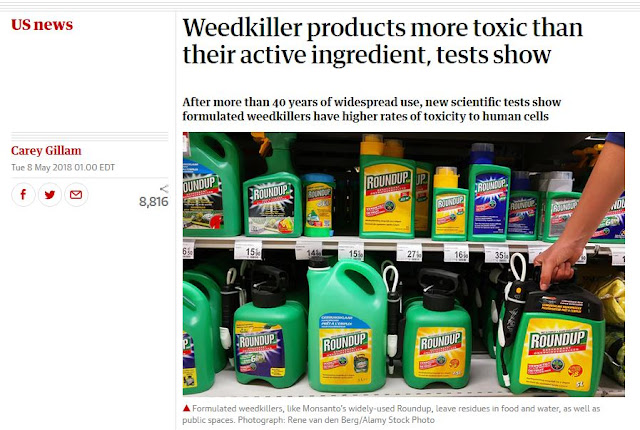Interpreting "Weed Killer Formulations Toxic to Cells"

When I read it I think, "No S-- Sherlock." But to Carrie Gillam this is rhetorical red meat, another way to sell a book, put dollars in her pocket, and advance a cause --- by exploiting credulous media and readers. Her second recent article in the Guardian says that the herbicide formulation Roundup is more toxic to human cells than glyphosate alone. This revelation has been published many times before in actual journals, so this is not new information, just time to stoke the fear fire a bit more. Yes, products formulated to penetrate cells are usually toxic to cells-- in a petri dish. Use of the product on crops means your cells do not get the same exposure, and your body is not a layer of slime in a Petri dish. Researchers have examined glyphosate for toxicity or endocrine disruption potential against tissue culture cells. These limited systems are great ways to start understanding how a compound might affect cells, which can then inform later studies in





